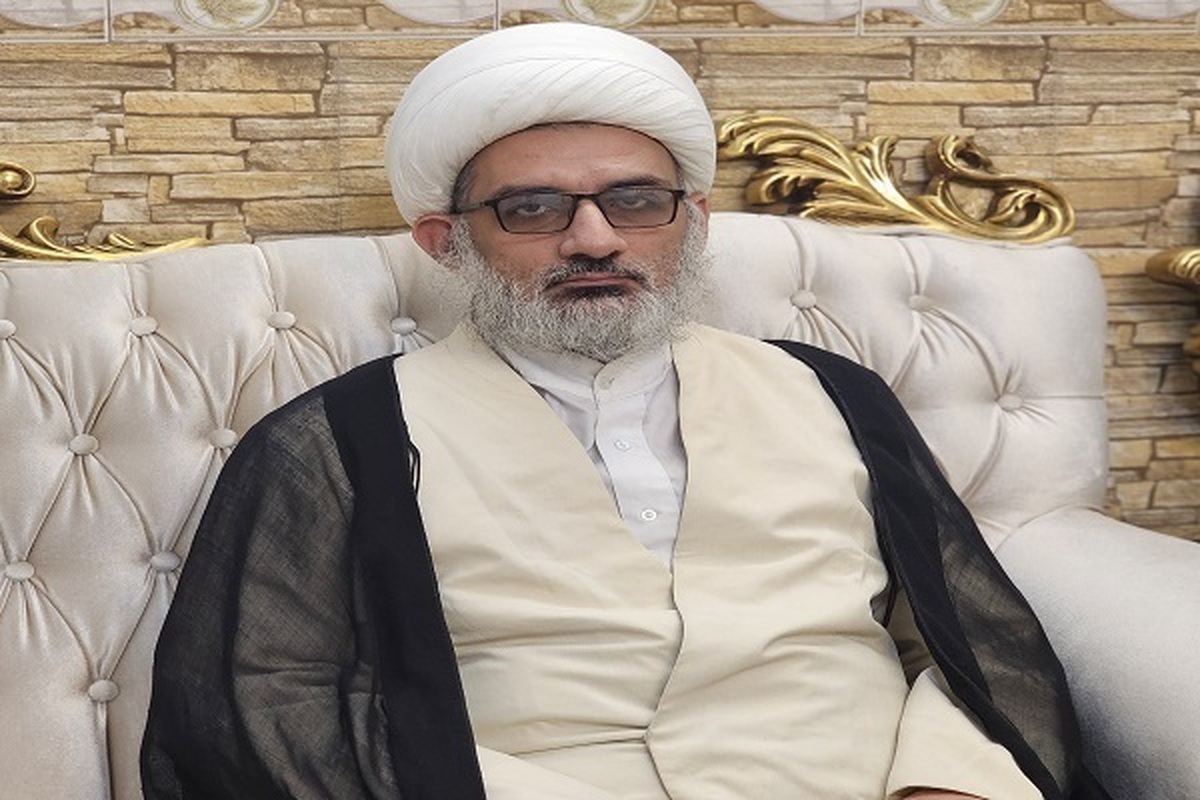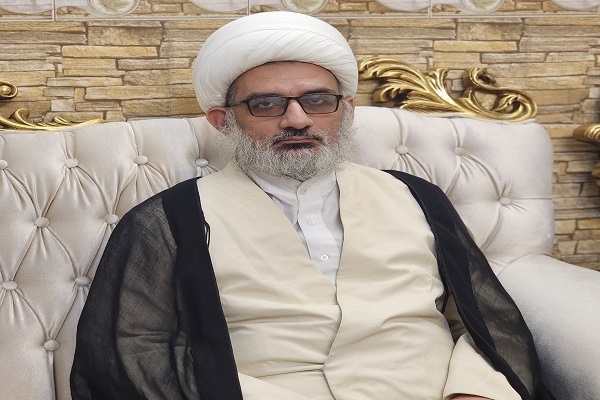Mab’ath A Universal Civilizational Plan: Scholar


Sheikh Muhammad Karbasi, an instructor at Najaf Islamic Seminary, made the remark in an interview with IQNA on the occasion of Eid al-Mab’ath, the day when Muhammad ibn Abdullah (PBUH) was appointed to prophethood.
Karbasi spoke about the wisdom and philosophy behind the Mab’ath, saying that it holds profound wisdom and philosophy derived from the divine teachings in the Holy Quran and the Prophet’s tradition.
“It can be summarized in several dimensions:
1- Leading people from darkness to light: According to the Quran, “It is He who sends illustrious revelations to His servant to take you out of darkness to light. God is Compassionate and All-merciful to you,” (Verse 9 of Surah Al-Hadid) the Prophet (PBUH) was sent to save humanity from the darkness of ignorance and polytheism to the light of monotheism and faith in God, as well as from moral deviation to the noble human values.
2- Establishing Divine Justice: According to Verse 25 of Surah Al-Hadid, “We sent Our Messengers with clear evidence (to support their truthfulness), and sent with them the Book and the Balance so that people would maintain justice. We sent down iron - in which there is strong power and benefit for the people - so that God would know who would help Him and His Messenger without seeing the unseen,” one of the aims of the Prophet's (PBUH) Mab’ath was to achieve social justice, establish fairness among people, and prevent oppression and discrimination.
3- Self-Purification and Ethical Conduct: Based on Verse 2 of Surah Al-Jumua, “It is He who has sent to the illiterate a Messenger from among their own people to recite to them His revelations and purify them. He will teach the Book to them,” the Holy Prophet (PBUH) was sent to purify souls, cleanse them from vices, promote ethical conduct, and teach wisdom and virtue to humanity, as these are essential for creating a virtuous society rooted in morality.
4- Achieving Human Unity: According to Verse 107 of Surah Al-Anbiya, “We have not sent you (Prophet Muhammad) except as a mercy to all the worlds,” the Mab’ath of the Noble Prophet (PBUH) was a comprehensive message of mercy for all humanity, aiming to unite all people, eliminate division, and achieve human unity under the banner of faith in God.
5- Liberation from Serving Others Besides God: The Prophet (PBUH) stated, “I was sent to perfect noble character.” He was sent to free humans from the servitude of desires, illusions, and serving others so that they may become true servants of God and thus realize human dignity.
6- Guidance to the Straight Path: According to the Almighty God, “You certainly guide (people) to the right path,” (Verse 52 of Surah Ash-Shura), the Prophet’s Mab’ath was to guide humanity to the straight path, which leads to happiness in this world and the hereafter.
7- Declaration of the Final Prophethood: The Mab’ath of Prophet Muhammad (PBUH) signifies the conclusion of divine missions and represents a complete and comprehensive message suitable for all times and places. God says in Verse 40 of Surah Al-Ahzab, “Muhammad is not the father of any of your men. He is the Messenger of Allah and the Seal of the Prophets. Allah has knowledge of all things.”
Sheikh Karbasi added that some consider the Mab’ath as a turning point in the history of humanity and a great day of guidance because this event marks the beginning of the Islamic mission brought by Prophet Muhammad (PBUH), and this day has changed the history of humanity in multiple spiritual, social, and cultural aspects.
Read More:
He added that in terms of spiritual guidance, the revelation of the Quran to the Prophet (PBUH) carried the message of God’s oneness, calling for true faith and the abandonment of idolatry and polytheism.
The Iraqi scholar went on to say that Islam was revealed with principles such as justice, equality, and human rights, urging people to avoid class divisions, fight oppression, and strengthen moral values like honesty and trustworthiness.
Therefore, the Prophet Muhammad’s Mab’ath marks the beginning of a new era for humanity, initiating a global mission that calls for unity, reform, and civilizational progress.
He added that the Mab’ath of the Prophet (PBUH) was not merely a call to correct beliefs or present a new perspective; it was a comprehensive civilizational plan aimed at establishing a society based on divine justice, encompassing various aspects of life, including social, economic, political, and judicial dimensions.
“During his 23 years of prophethood, the Prophet (PBUH) did not limit himself to delivering the divine message but he also established a social system governed by justice and equality. He eradicated oppression at its roots, restored the rights of all individuals, and fought against the prejudices of ignorance. Divine justice was the cornerstone of the laws by which the Prophet (PBUH) organized the lives of individuals and groups, laying the foundation for a balanced society where the dignity of all individuals is guaranteed.
Read More:
“Thus, the significance of the Prophet’s (PBUH) Mab’ath lies in the comprehensiveness of his message, which intertwined belief with practical reality and established justice as a fundamental value in the life of the Islamic community.”
4262102



